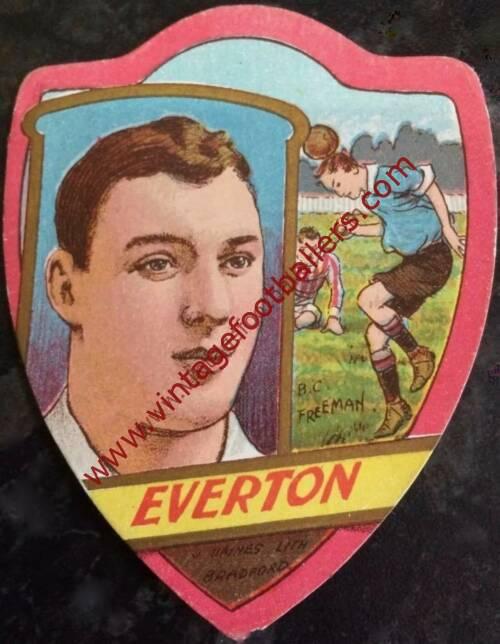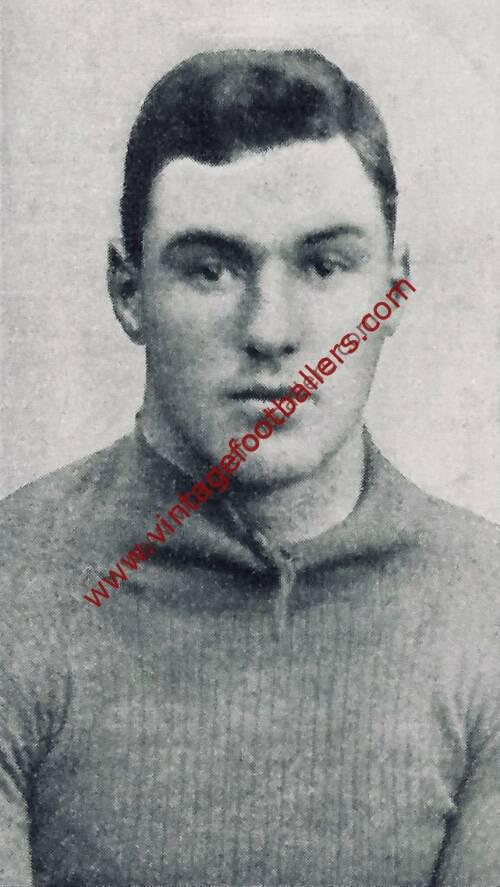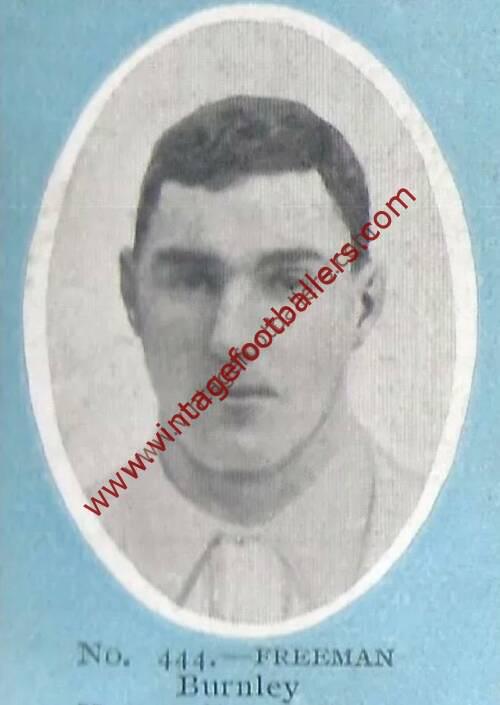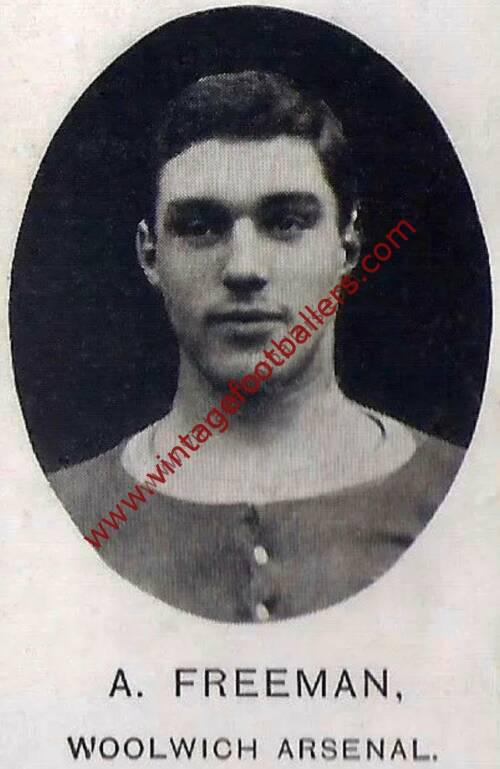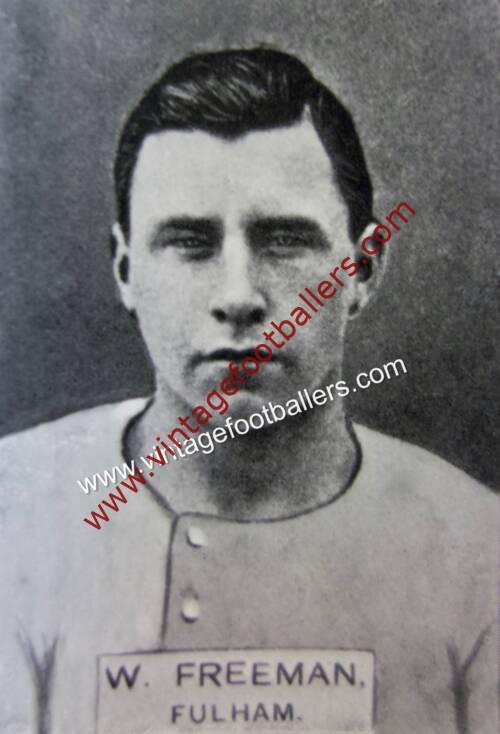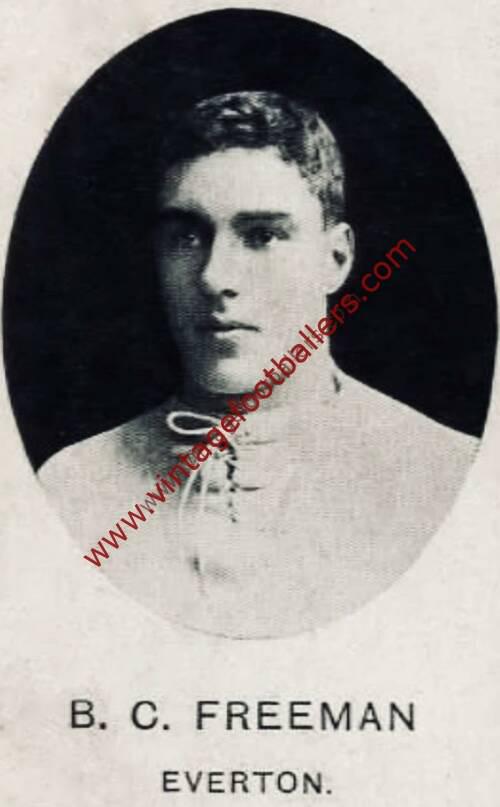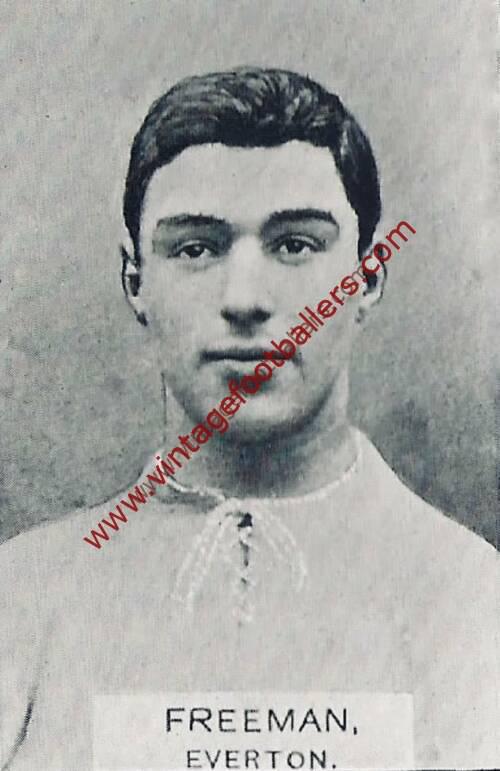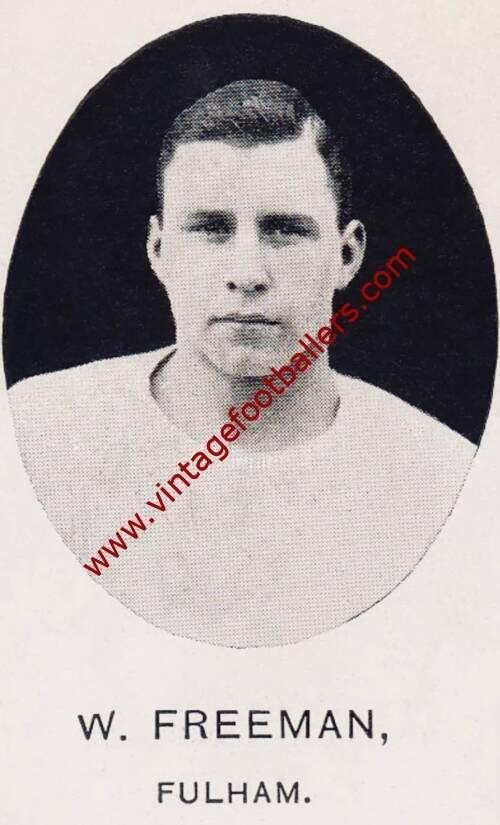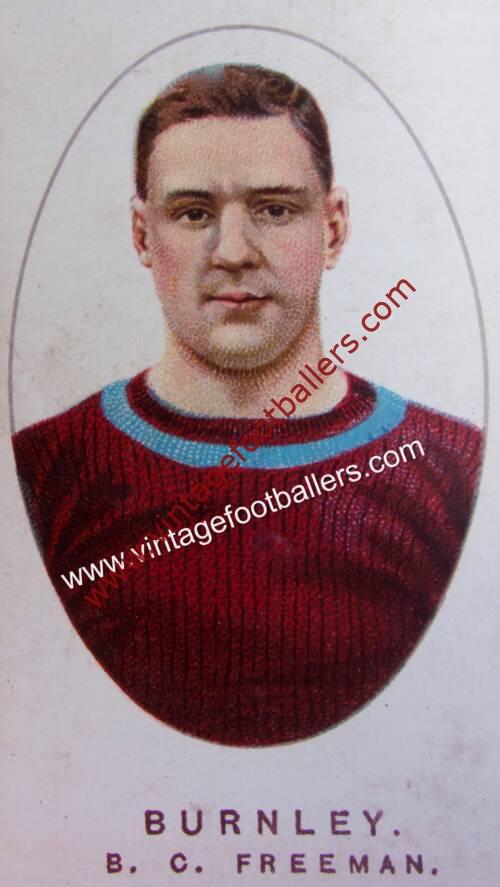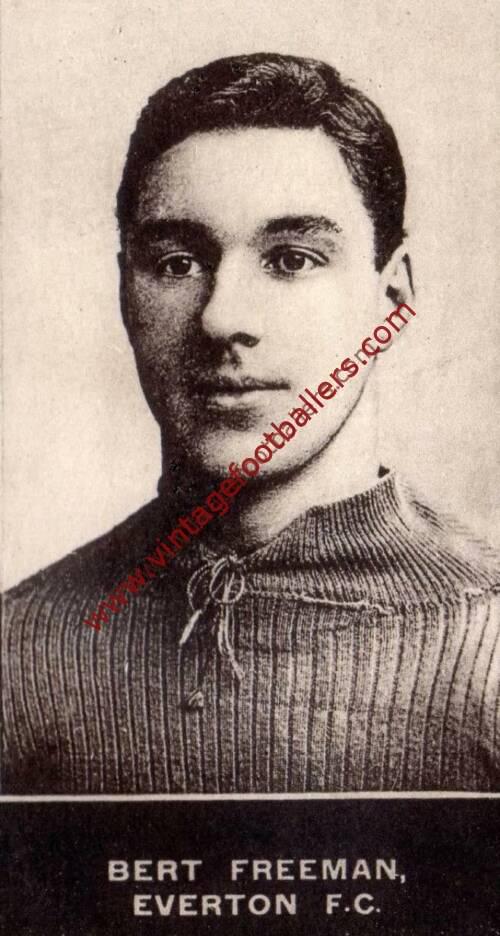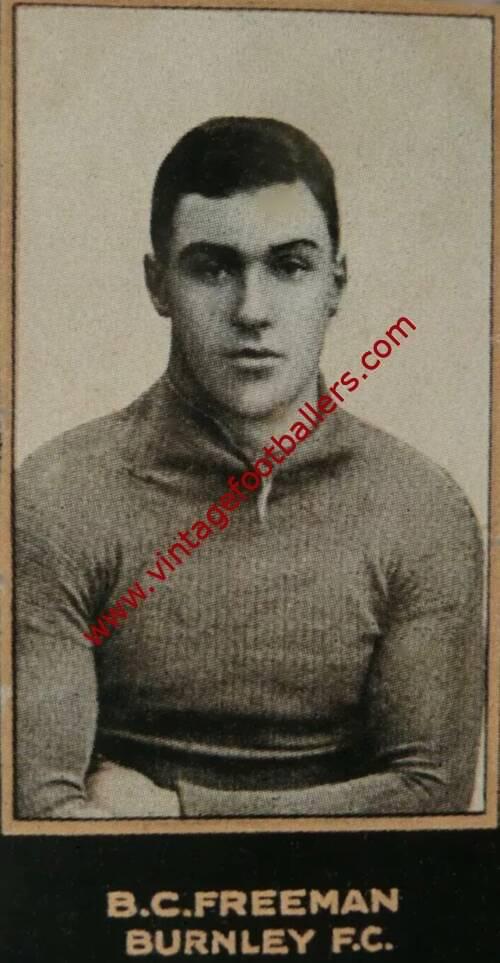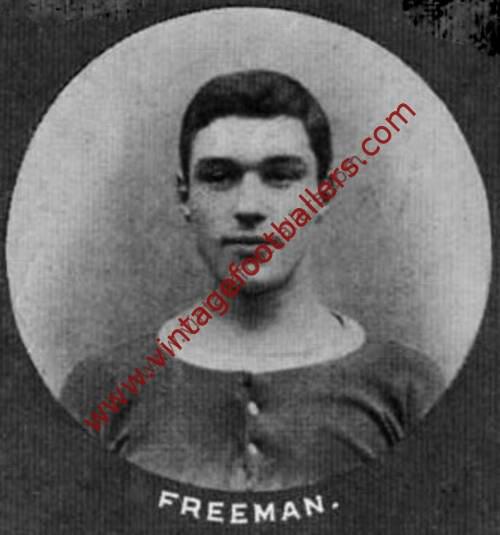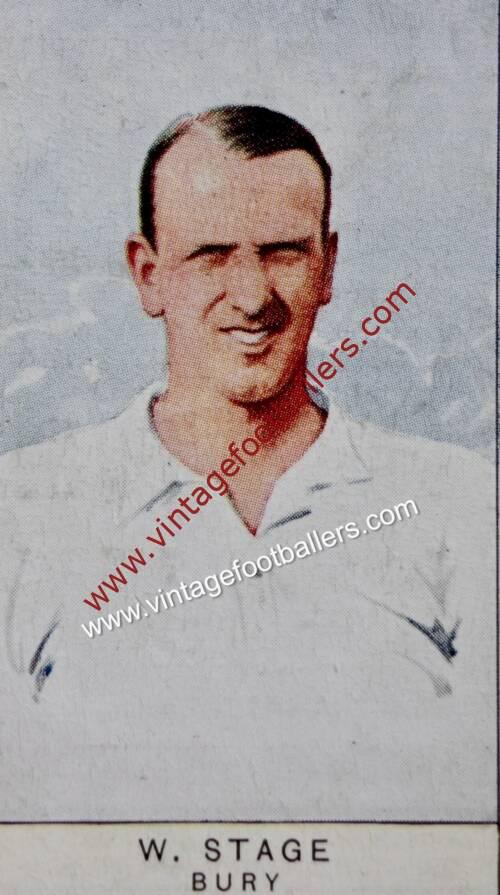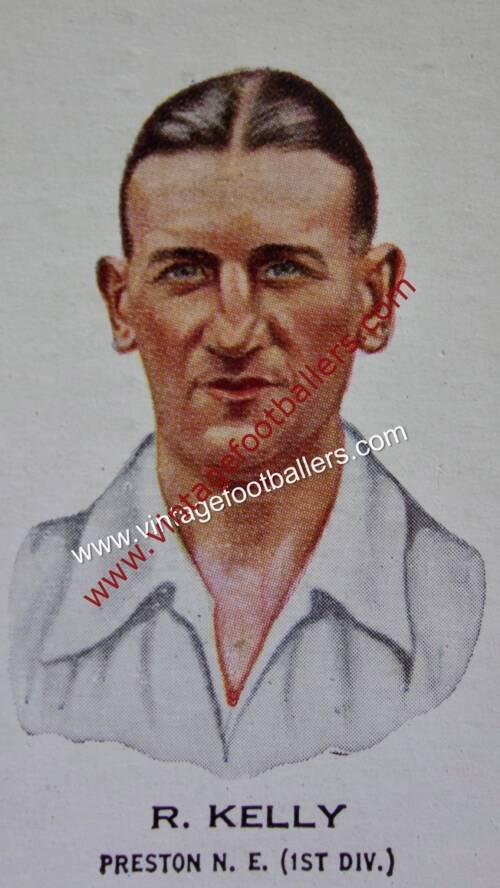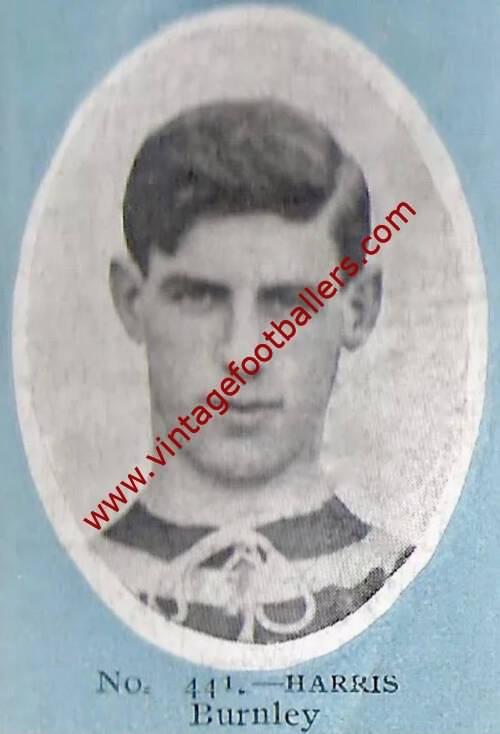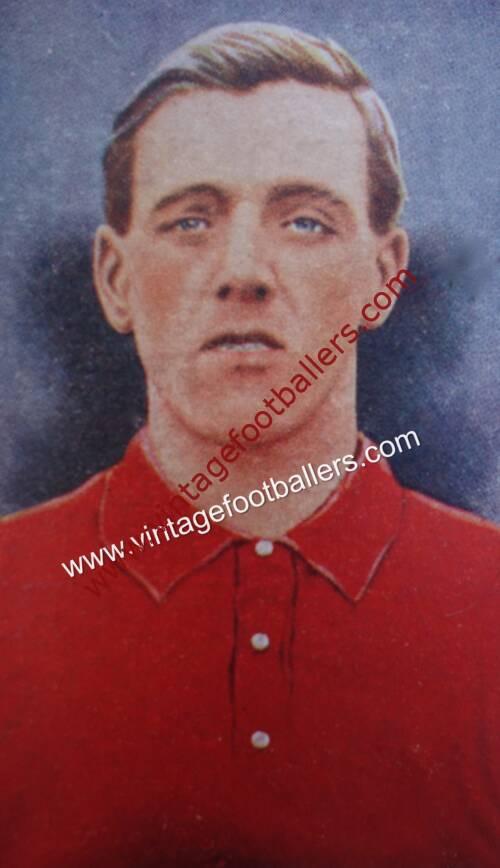Please choose your photo size from the drop down menu below.
If you wish your photo to be framed please select Yes.
Note: 16″x 20″not available in a frame.
Images can also be added to accessories. To order please follow these links
£8.95 – £49.95
In stock
Please choose your photo size from the drop down menu below.
If you wish your photo to be framed please select Yes.
Note: 16″x 20″not available in a frame.
Images can also be added to accessories. To order please follow these links
Handsworth, Birmingham born double goals centurion Bert Freeman was a very successful centre forward and is a Burnley legend, not merely because he scored the winning goal in the 1914 FA Cup Final triumph over Liverpool. He began his football career playing junior football for Gower Street Old Boys in 1900 and Aston Manor in 1901 before joining his local First Division club Aston Villa in April 1904.
He left Aston Villa without ever having appeared in claret and blue, signing for Woolwich Arsenal in November 1905, making his Football League debut at Nottingham Forest that November, scoring in a 3-1 defeat, followed by a brace on his home debut in a 2-0 win over Manchester City. At Arsenal he scored 24 goals in 49 appearances over the next three years before Everton paid £350 for his services in April 1908. Freeman made his debut against Liverpool the same month and he soon began to blaze a trail that would see a return of 65 goals in 94 appearances over the next three years, being part of the team that finished runners up in the League Championship in 1909, with Freeman scoring 36 goals in the campaign, with two hat-tricks against Sheffield United and a further treble against Chelsea. The following season he scored 26 goals including hat-tricks in 3-1 wins over both Sheffield Wednesday and Bolton Wanderers, and was part of Everton’s 1910 FA Cup semi final team that lost in a replay to Barnsley.
He won the first of his 5 England caps, scoring against Wales at The City Ground in March 1909, and after his second cap in a 2-0 win over Scotland at The Crystal Palace the following month, the latter three were all awarded in the Home Championship games in the spring of 1912, Freeman scoring in away wins over Ireland and Wales. He also made 4 appearances for The Football League between October 1909 and October 1913.
In April 1911 an £800 fee secured him (and Harry Mountford) for Burnley and although the First World War interrupted his career he scored 115 goals in 189 appearances for The Clarets over the next 10 years. His total goals including wartime games was 174 from 300 appearances and he also guested for Birmingham during the conflict, during which he served in the Armed Forces. He helped Burnley to promotion as Second Division runners up in 1912-13, scoring 4 goals in a 5-1 win over Leicester Fosse in December 1912 and 4 other hat-tricks during his time with Burnley, and he scored the winner in their 1914 FA Cup Final victory against Liverpool at The Crystal Palace, his fifth goal in their FA Cup run. The Final was played in front of King George V, who was the first reigning monarch to attend a Cup Final. A fierce shot on 58 minutes by Freeman gave Burnley “a narrow victory in an otherwise undistinguished match in which two teams with low positions in the League slogged it out in midfield, neither set of forwards being capable of mounting a sustained attack”.
After the War he contributed 12 goals in Burnley’s League runners up finish in 1919-20, although the following year when they won the League Championship he played only 3 times. Freeman was three times top scorer in a League season with 38 goals in 1908-09, 32 in 1911-12 and 21 in 1912-13.
Shortly before he left Turf Moor, a local newspaper published this tribute:
“Freeman may justly be described as one of the most remarkable players of the past 20 years, a centre-forward who was a leader in deed as well as name. The modern tendency is for the leaders of attack to wait for opportunities to be provided for them. They have to be spoon fed to succeed, merely relying upon pace, weight and ability to shoot. Freeman could burst through with the best; moreover he could also engineer openings for his colleagues and was an artist with the ball at his toes.That queer, short step of his misled many defenders and it was one of the surprises of football when in 1909 Everton decided that his playing days were over. So far from the fact did the Everton judgement prove that Freeman led Burnley to promotion and to victory in the English Cup.
He has been with the Turf Moor club for 11 years and has taken part in 300 games for them in which he has scored 174 goals – a wonderful record for a player supposed to be at the end of his career. He will be greatly missed at Turf Moor, where he made himself one of the most popular players the club has ever possessed.”
He joined Wigan Borough in September 1921 and scored 13 times in 25 appearances for them, ending that season as their top goalscorer before finishing with League football in May 1922 and subsequently playing for non league Kettering Town and Kidderminster Harriers in 1923, before joining Dudley Bean in 1925 before his eventual retirement.
His brother, Walter was also a footballer, playing for Aston Villa, where he was on their books at the same time as Bert but didn’t play for their first team, Fulham, where he won the Southern League Championship, and Birmingham.
| Weight | N/A |
|---|
